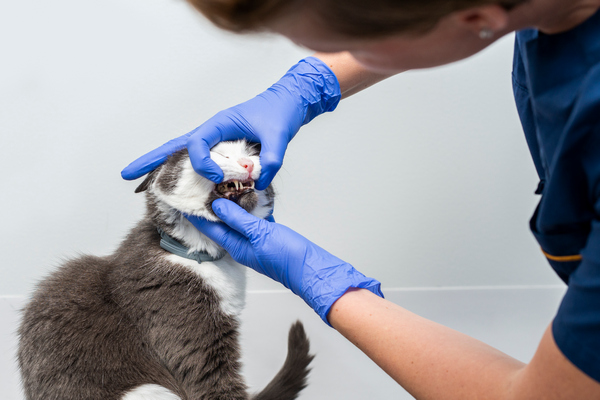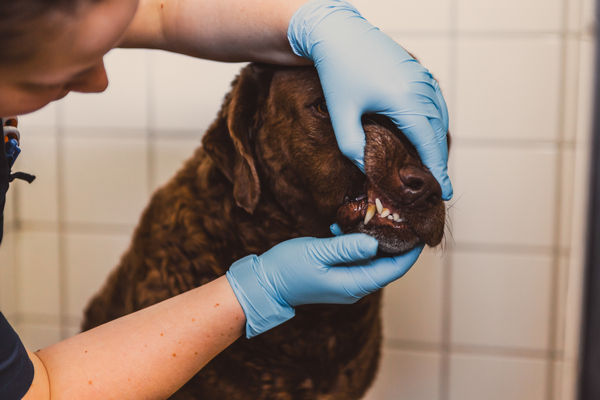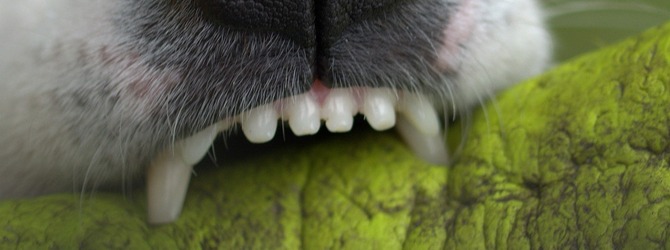Do's and don'ts of pet dental care
Taking care of your pet’s teeth and gums is really important for their overall health.
Dental issues are common in dogs and dogs, and ignoring them can lead to bigger problems.
Check out these do's and don'ts to keep your pet's teeth and gums healthy and clean.
Do: Brush your pet's teeth regularly
You should make every effort to brush your pet’s teeth every day using a soft-bristled toothbrush and toothpaste approved by your vet. This will help prevent plaque and tartar buildup, and reduce the risk of gum disease.
Don't: Use human toothpaste
Human toothpaste can be harmful to pets as it often contains toxic ingredients like xylitol. It also contains unsuitable levels of fluoride for dogs. Always use toothpaste specifically formulated for dogs — these are often meat-flavoured rather than mint, to make them more palatable.
Do: Visit your vet regularly
Take your pet for regular dental check-ups to catch and prevent dental problems early. Your vet will guide you on when to get your pet’s teeth professionally cleaned.
Don't: Ignore bad breath
Bad breath in pets can be an early sign of dental disease. If your pet’s breath smells foul, it could be due to a build-up of bacteria and plaque or an underlying health issue. Speak to your vet if you’re concerned about persistent bad breath.
Do: Provide dental chews and toys
Vet-approved dental chews and toys are excellent for maintaining oral health. They aid in reducing plaque and tartar build-up and help to keep your pet’s teeth clean and gums healthy. Look for products approved by the Veterinary Oral Health Council.
Don't: Give your pet hard objects to chew
Avoid giving your pet hard objects like bones, rawhide, or hard plastic and nylon toys, as these can cause tooth fractures. Stick to vet-approved chew toys and treats that are designed to be safe and effective for dental health. If you can’t make a dent in it with your fingernail, it’s probably too hard.
Do: Use dental rinses and water additives
Dental rinses and water additives can help keep your pet’s teeth clean and their breath fresh. These products have ingredients that reduce bacteria. Follow your vet's advice on which to use.
Don't: Neglect your pet's diet or forget about hydration
Diet plays a really important role in dental health. Dry kibble can help reduce plaque build-up compared to soft food. You can also buy food specially formulated to reduce tartar accumulation. Drinking plenty of water keeps your pet's mouth healthy by naturally cleaning the mouth and reducing the amount of bacteria in it.
Do: Monitor for signs of dental disease
Watch out for signs of dental problems like bad breath, red or swollen gums, trouble eating, drooling, and loose teeth. It's important to catch these early to prevent more serious problems. If you see any worrying signs, talk to your vet.

Don't: Skip professional cleanings
Even with regular brushing and dental chews, professional teeth cleaning is essential. Vets have the tools and expertise to clean below the gum line and remove stubborn tartar, and it’s also an opportunity to thoroughly check each tooth. Skipping this may lead to periodontal disease.
Do: Encourage positive reinforcement during dental care
Try to make tooth brushing and dental care a positive experience for your pet. Keep sessions short but regular. Use treats, praise, and gentle handling to help them feel more comfortable and cooperative with regular dental care.
Don't: Delay treatment for dental issues
If your pet has dental issues, speak to your vet as soon as possible and follow their recommended treatment plan. Early treatment can prevent more serious problems and keep your pet’s mouth healthy and pain-free.

Do: Start dental care early
Begin dental care routines when your pet is young. Training them early will help them get used to brushing and other dental care habits, making it easier to keep their teeth healthy as they grow older. With young puppies, start by simply smearing small amounts of dog toothpaste on their teeth and gums and progress slowly to brushing.
Don't: Overlook your pet's breed
Certain dog breeds such as Toy Poodles, Cavalier King Charles Spaniels and Greyhounds, are more likely to have dental issues and may need extra attention.
Need more advice on dental care?
For expert advice, use our find a vet page to find your nearest vet, or speak to a vet online using our video vet service.
Remember, prevention is always better than cure, so start taking steps today to protect your pet’s teeth. Members of Pet Health Club get six-monthly dental check-ups and 10% off dental procedures as part of their benefits.


